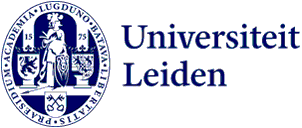Career policy for academic staff
Leiden University wants to attract the best academics. What requirements does it set for new academic staff members? What requirements must you meet for a career in academia? Read more about our career policy for academic staff.
PhD basis for academic career
You will need a PhD if you wish to take the next step in your academic career, regardless of whether this means working as a lecturer, associate professor or professor. This principle does not apply to faculties who are hiring lecturers on a temporary basis. In any other exceptions to the rule, the approval of the Executive Board will be needed.
Experience: within or outside academia
If you are applying for a permanent position, you must have experience outside Leiden University. This can be academic experience at another university or practical experience outside academia.
GROW
Once every year you will be invited to a GROW interview. Your performance and development over the past year will be appraised, and you will make agreements for the year to come.
Permanent contracts, promotions or other awards such as an extra salary raise or a bonus are dependent on the GROW interview. Your performance must have met the requirements for your position.
Teaching qualification
All university staff with a teaching role must possess one or more teaching qualifications.
PhD candidates and academic staff who have a 0.5 fte contract of less than a year must follow a basic course in teaching skills.
All professors, senior lecturers, associate professors and lecturers with a contract of at least one year for at least 0.5 fte must possess the University Teaching Qualification (BKO).
The Senior Teaching Qualification (SKO) is a qualification for staff who wish to work at a higher level in teaching innovation and development.
Gender diversity
To attract more talent to the University, we aim for greater gender diversity right up to the highest level. We therefore pay particular attention in our recruitment process to applications from people who are underrepresented within particular roles.
More information
For more information on the recruitment and support of academic staff, see the Guidelines on the Appointment of Academic Staff.
Guidelines for job classification, salary scale and promotion of academic staff at the Faculty of Humanities
These guidelines are based on the Collective Labour Agreement (CAO) and Leiden University regulations and policy, and are intended to inform employees about job classification, salary scale, and promotion of academic staff.
1. Guiding principles
The following principles apply to job classification, salary scale, and promotion.
- Framework
Temporary and permanent appointments must fit within the established long-term budget. This also applies to job changes, salary classification, and promotions.
- Personnel plan and staffing levels
In its annual personnel plan, the institute draws up a personnel plan in which the current staffing levels are compared with future staffing requirements. Based on this, the institute's management team determines the available positions, specifying the job titles (and levels), number of positions, number of FTE, and whether the positions are permanent or temporary. These are positions that are required to carry out the tasks in the field of education, research, and management. The staffing levels also determine the inflow, transfer and outflow of personnel.
2. University Job Classification System (UFO): Job classification and salary scale
The assigned tasks form the basis for the classification of a position. These tasks are compared with the text of a job profile in the job classification system. This information is used to determine the profile of the job in question. To determine the job level, classification criteria and classification rules are included in each job profile. The classification rules are used to determine the job level. In determining the level, it is important that the employee meets the full breadth of the profile. It is also important that the assigned tasks are structural and substantial in nature. Structural means that the task in question is permanent, i.e. a task that recurs periodically. Substantial means that the task must comprise at least 10% of the total range of tasks. The job level in turn determines the salary level. The job level matrix clearly links all job and salary levels.
There is no right to advancement within and between UFO profiles, although the continuous classification in the various positions may lead to expectations and wishes on the part of individual employees with regard to opportunities for promotion. Supervisors and employees discuss their mutual expectations in the GROW interview.
3. Faculty criteria for placement and promotion
In addition to the generic UFO criteria for the positions of assistant professor, lecturer, and researcher, the Faculty of Humanities has established its own criteria for the placement and promotion of its staff. These criteria are laid down in Assistant Professor, Lecturer, and Researcher.
They include the following additional criteria:
- PhD requirement
- Years of experience
- University Teaching Qualification
- Proficiency in English
- Proficiency in Dutch
The classification criteria in the UFO profile and the Faculty placement and promotion criteria are used to determine the applicable job level and corresponding salary scale.
Procedure and criteria for appointment and promotion of a senior university lecturer (UHD)
The mandate for promotion from university lecturer to senior university lecturer lies with the Faculty Board. The academic director puts forward a nomination based on an internally advertised vacancy (within the institute), or based on a personalised procedure. The institute's strategic personnel plan indicates where promotion to senior university lecturer is possible, taking into account both the current structure and composition of the staff and the institute's future ambitions. Financial considerations also play a role in this context, and the promotion must fit within the institute's budget. Both procedures take place within this framework.
